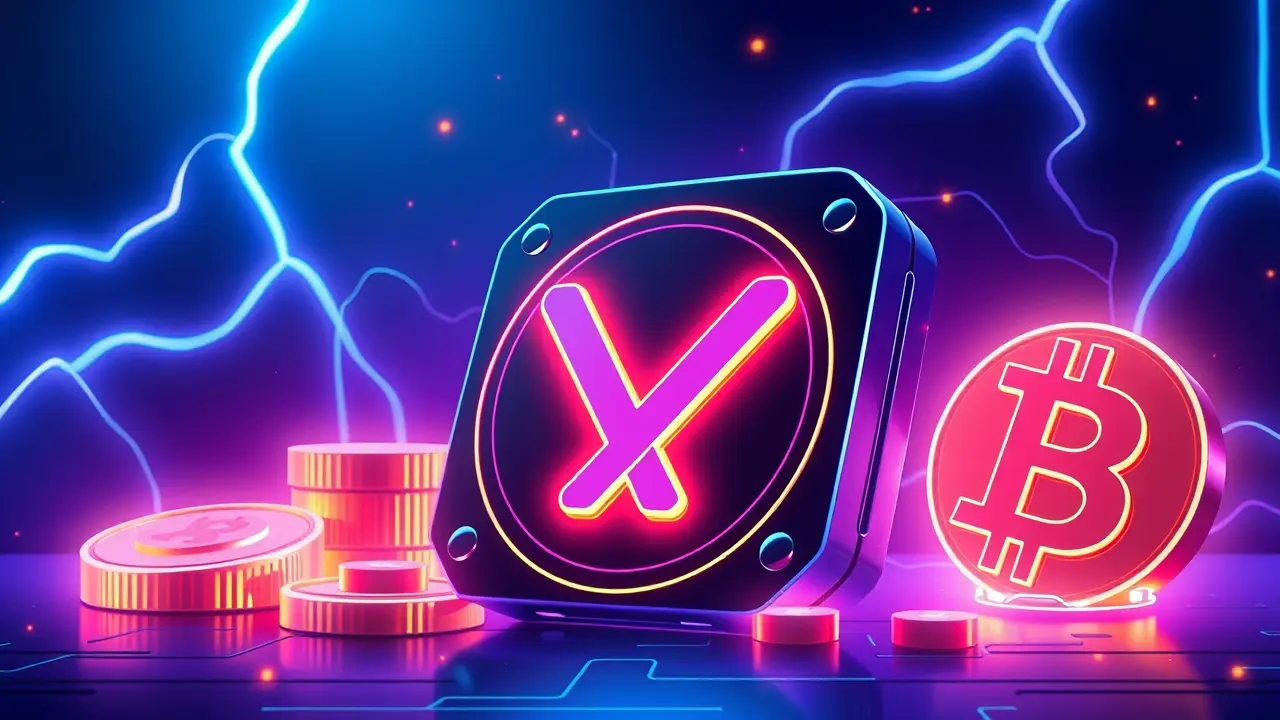- News
- regulation
- XRP Investor Says $3M in XRP Was Stolen; Cold Wallet Maker Says Seed Import Made Wallet Hot
XRP Investor Says $3M in XRP Was Stolen; Cold Wallet Maker Says Seed Import Made Wallet Hot
The crypto world is reeling from a stark reminder that the siren song of 'not your keys, not your coins' carries a brutal corollary: mismanage those keys, and your coins are gone forever. A devastating report has emerged of an XRP investor alleging a staggering $3 million theft from a wallet they believed was a secure cold storage solution.The narrative, however, is fracturing along familiar battle lines, pitting user error against product failure in a classic crypto blame game. The investor points a furious finger at the cold wallet manufacturer, claiming a fundamental flaw led to the catastrophic drain of their digital assets.The company, in a response that will send chills down the spine of any long-term holder, fired back with a rebuttal that is both technically precise and existentially terrifying: the wallet was never truly 'cold' because the user imported a pre-existing seed phrase, a process that inherently exposes those critical keys to the connected device during the initial setup. This isn't just a story of a single heist; it's a masterclass in the nuanced, often misunderstood, hierarchy of security in a trustless ecosystem.Let's be brutally honest here—this is precisely the kind of chaos that Bitcoin was designed to circumvent through its elegant simplicity and relentless focus on a single, robust chain. The altcoin universe, with its endless parade of 'next-generation' solutions and complex smart contract capabilities, often distracts from the foundational principle of pure, unadulterated sovereignty.The cold wallet, a hardware device meant to be an impenetrable vault, is only as secure as the absolute sanctity of its seed phrase generation. Generating a new, truly random seed within the isolated environment of the device itself is the gold standard, the digital equivalent of forging a key in a sterile, electromagnetically shielded room.Importing a seed, by its very nature, involves typing those words onto a keyboard connected to a computer that is, in all likelihood, perpetually online and riddled with potential keyloggers, clipboard hijackers, or other sophisticated malware. It’s a catastrophic failure of operational security, a single point of failure that undermines the entire multi-hundred-dollar purpose of the hardware.Was the user targeted by a highly advanced phishing attack that tricked them into revealing their phrase? Did they have a stored copy on a cloud drive that was compromised? Or is there a more insidious, supply-chain attack at play where a compromised device logged the seed during import? The investigations will unfold, but the immediate consequence is a multi-million dollar lesson in the unforgiving mathematics of cryptography. This incident throws a harsh spotlight on the broader, often complacent, culture of crypto storage.How many users casually transcribe their 12 or 24 words onto a piece of paper stored in a 'safe' place, never considering the fragility of paper against fire, water, or simple misplacement? How many rely on encrypted digital files, trusting a password to protect what is essentially their entire financial existence? The emergence of metal seed phrase plates and multi-signature setups isn't just for paranoid maximalists; it's the logical evolution of personal custody in a world where a single mistake is financially fatal. Furthermore, this debacle underscores the regulatory nightmare that is decentralized finance.Who does the victim sue? The anonymous thief, likely residing in a jurisdiction with no extradition treaty? The wallet company, which can hide behind its terms of service and the user's own actions? The XRP Ledger itself, which performed exactly as programmed? This legal gray area is a feature, not a bug, for the cypherpunks, but it's a gaping void for traditional finance and law enforcement. For every story of a wallet provider heroically fixing a bug and making users whole, there are a dozen like this one, where the funds vanish into the immutable ether of the blockchain, leaving behind only rage, regret, and a permanent, public transaction hash as a tombstone.In the grand, Darwinian theater of crypto, this is natural selection in its purest form. It separates the diligent from the careless, the technically proficient from the casually interested.It reinforces the core Bitcoin maxim: trust in code, verify everything yourself, and understand that the convenience of a hot wallet is a tax on your security, while the sovereignty of a cold wallet is a responsibility that demands absolute discipline. The $3 million in XRP is almost certainly gone for good, but the value of the lesson it imparts—about key management, personal responsibility, and the brutal reality of being your own bank—is, for the rest of the ecosystem, potentially priceless.
It’s quiet here...Start the conversation by leaving the first comment.
© 2025 Outpoll Service LTD. All rights reserved.
